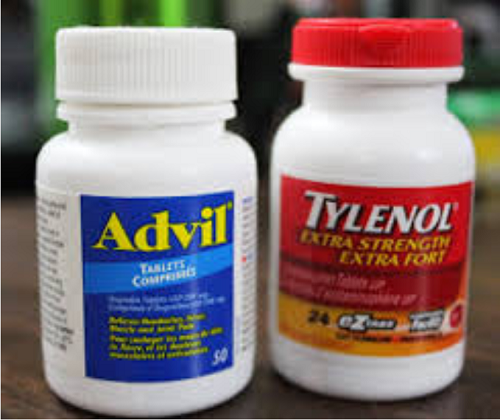Acetaminophen (Tylenol)

All of us have taken acetaminophen at one time or another when suffering from fever or pain. Here are some facts and side effects of over-the-counter (OTC) pain relievers to keep in mind.
Tylenol (and other generic brands) is usually effective for mild pain and fever and is easy on the stomach. However, even this very commonly used medicine is not free of side effects. It can be toxic in high doses. It is best not to use more than 3000mg or six tablets of 500mg in a twenty-hour period.
Use regular strength of Tylenol rather than extra-strength in order to avoid excessive dosages.
Tylenol can be particularly dangerous for people with liver disease.
Nonsteroidal Anti-inflammatory Drugs (NSAIDs)—commonly used drugs include Aspirin, Advil, Aleve etc.
These medications can be more effective for pain control than Tylenol for certain conditions because they also reduce inflammation as well as relieve pain.
These medications do have side effects, the most common is stomach irritation. It can also cause stomach and intestinal ulcers, which can lead to internal bleeding.
NSAIDs also carry an increased risk of heart attack, stroke, and kidney failure when taken at high doses or for long periods of time. Always consult with your doctor even starting any medicines.
For questions, please contact Qa'id Health at qaid.health@ansarusa.org
Source: Harvard Health Review

